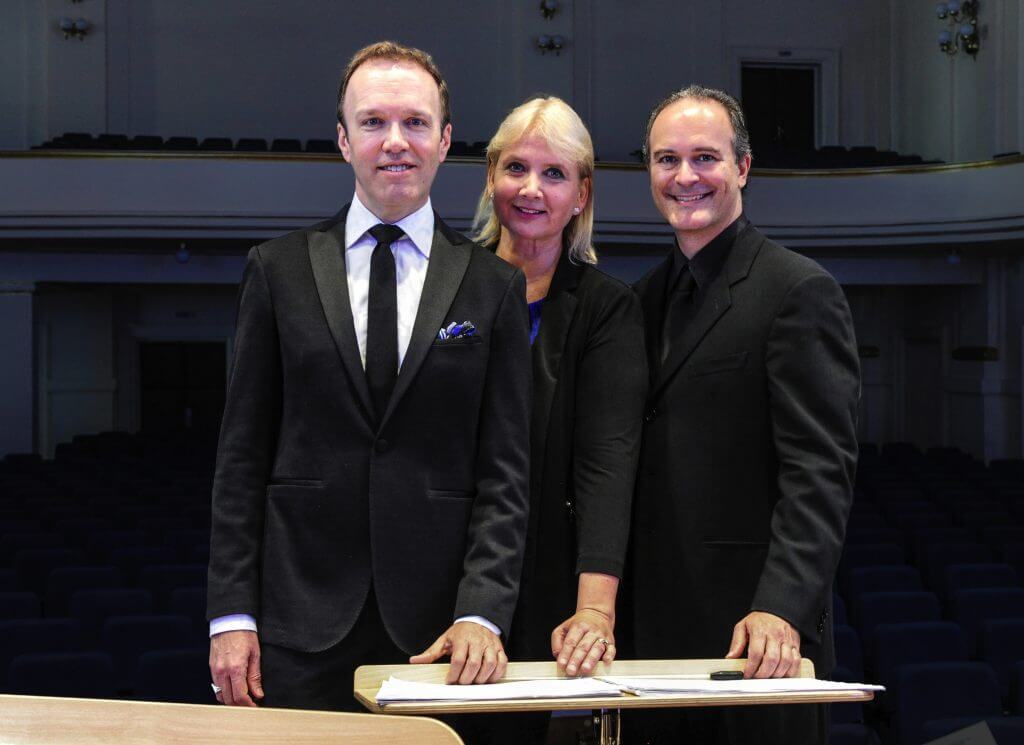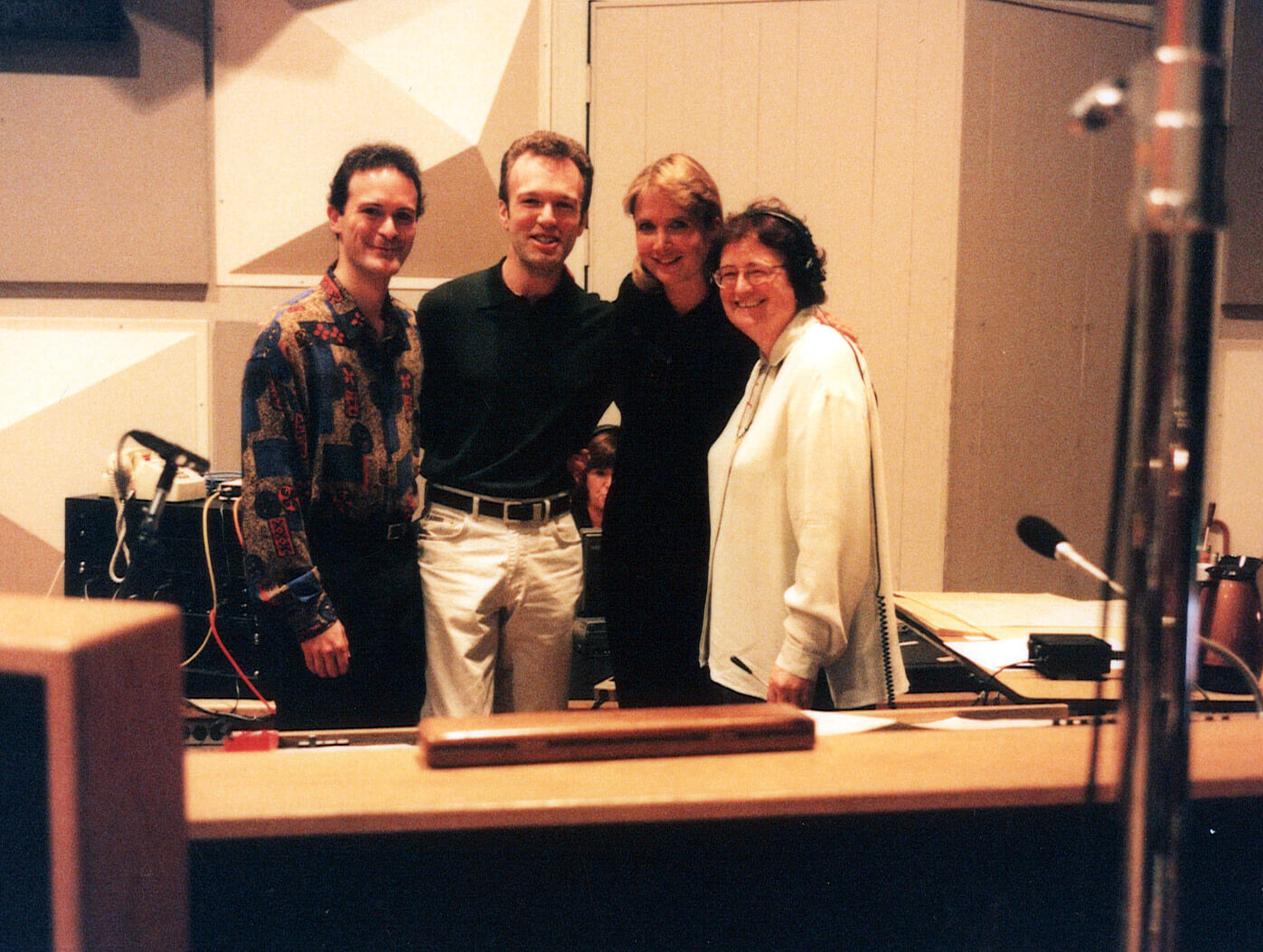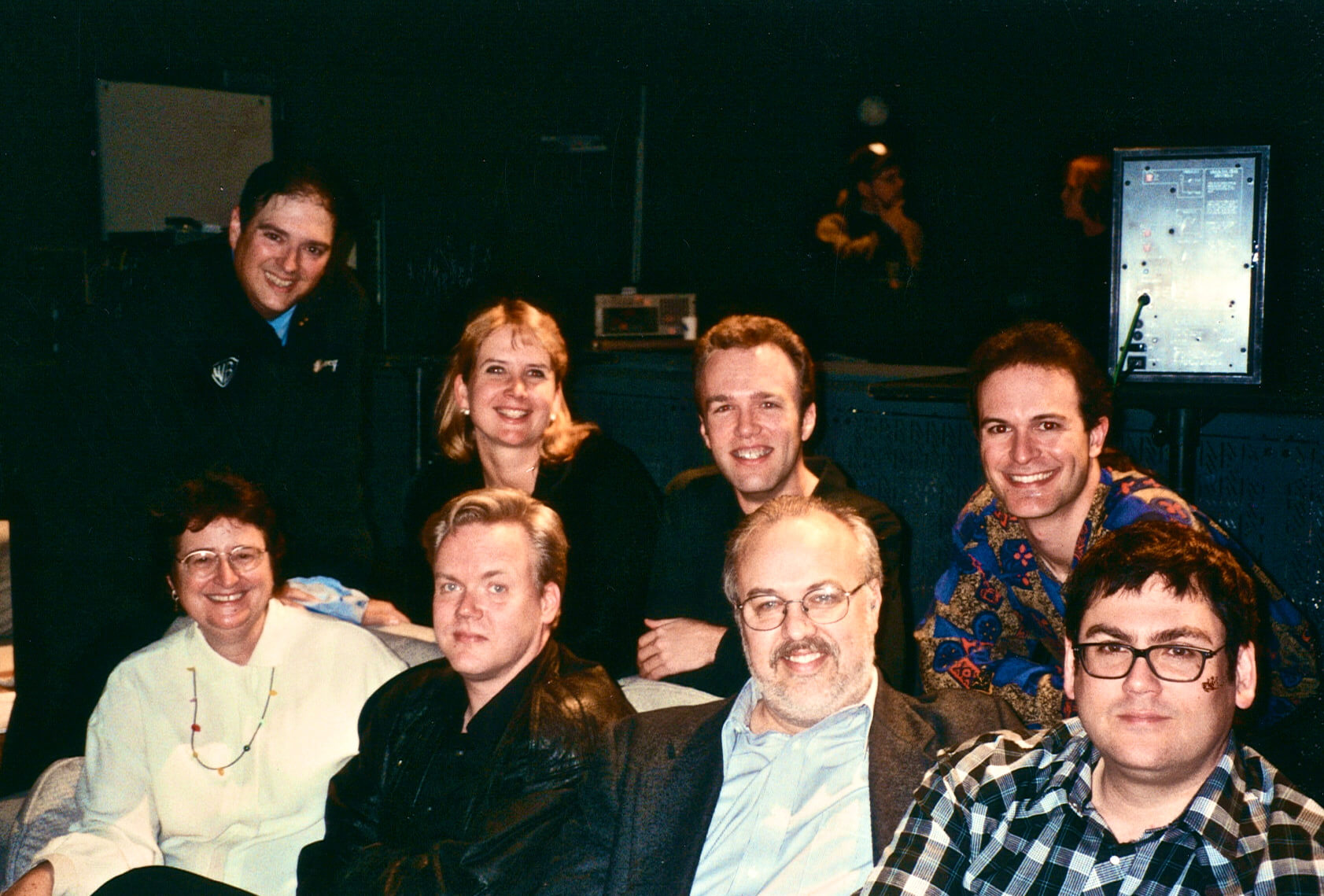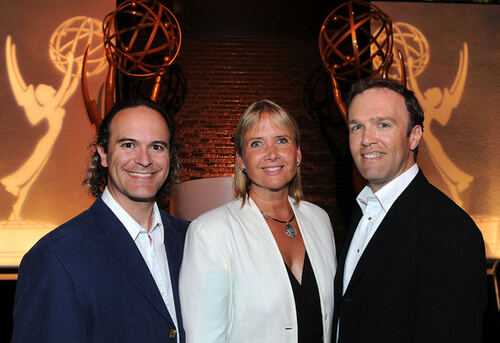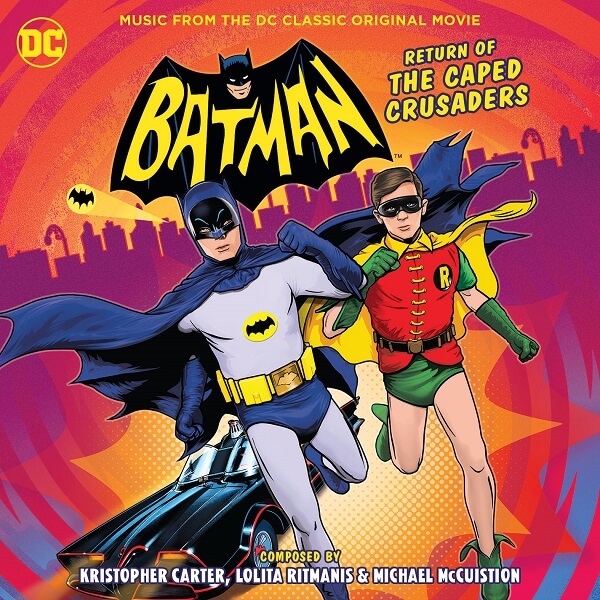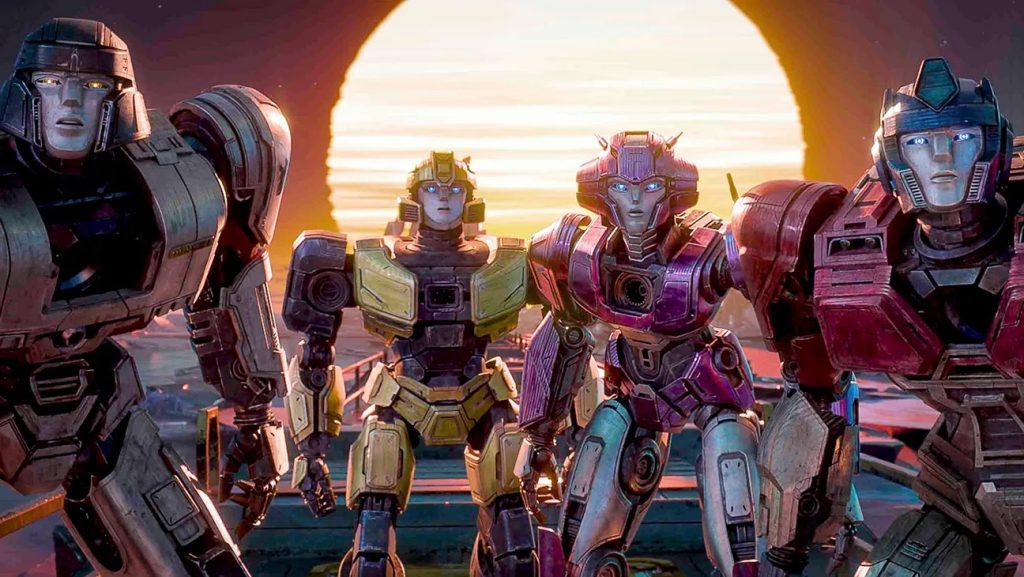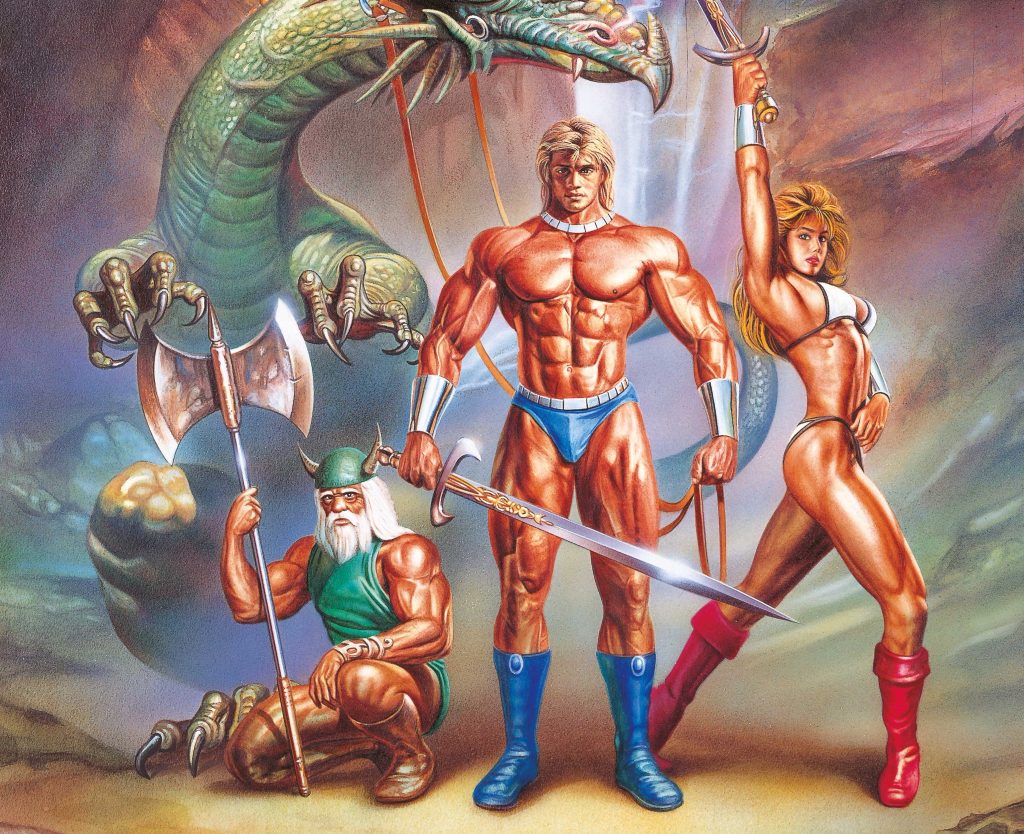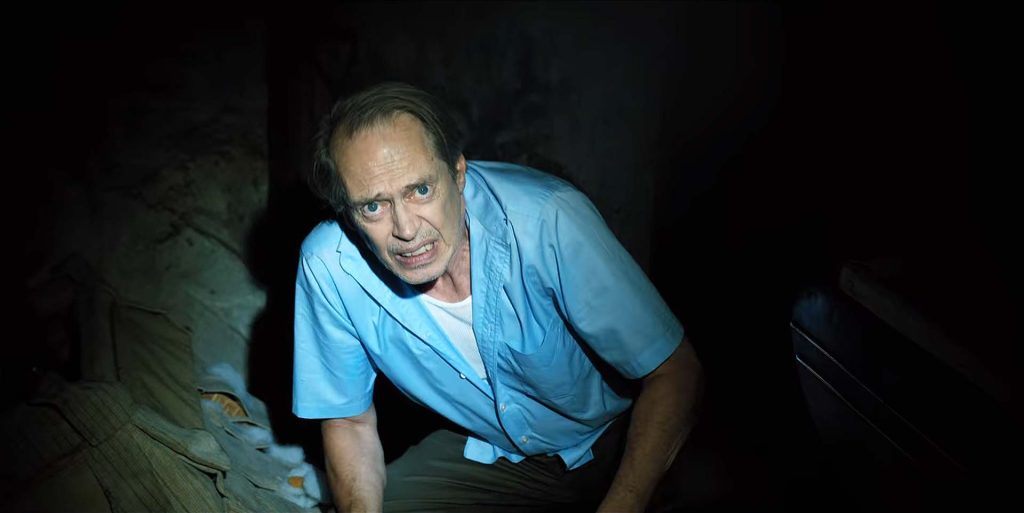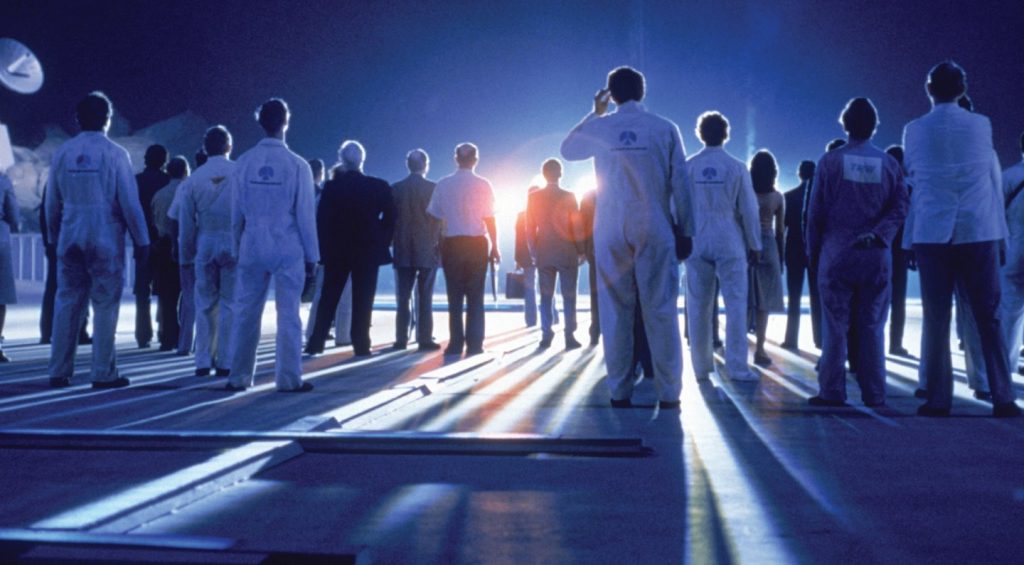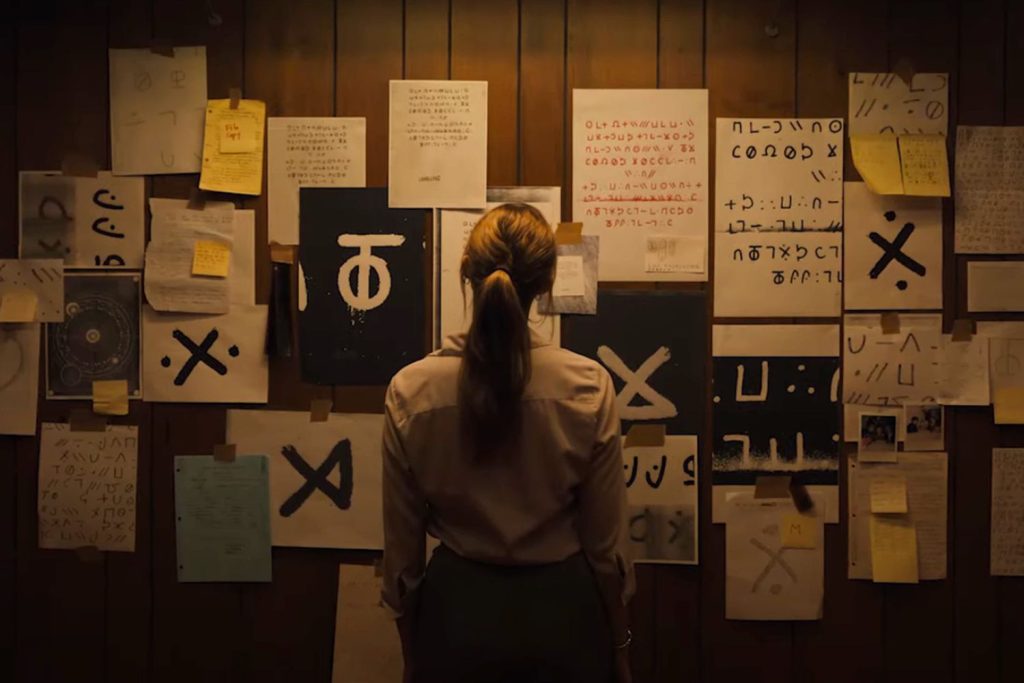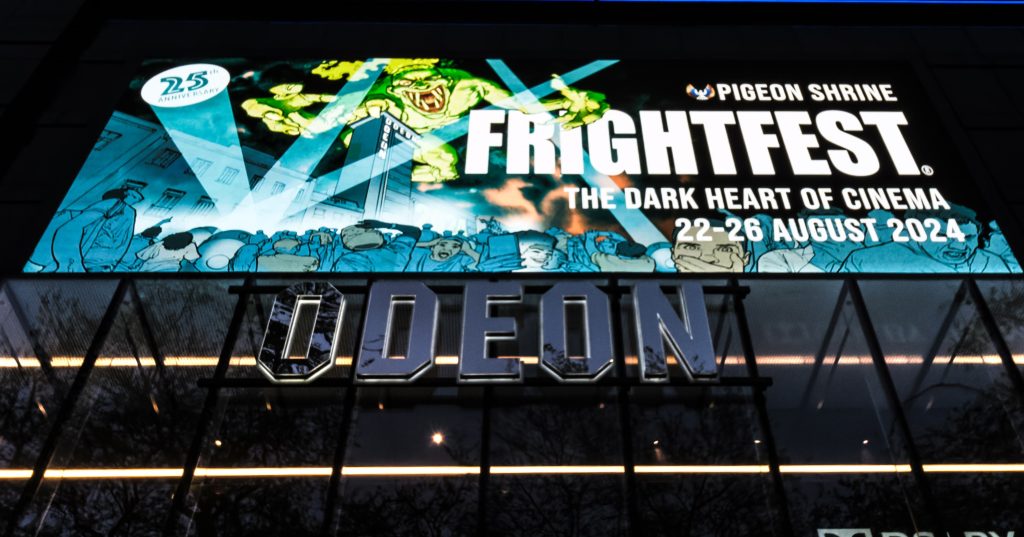One of the many spectacular facets of Batman: The Animated Series is undoubtedly the absolutely stunning musical beats that accompany the adventures of the Dark Knight. These days collectively known as Dynamic Music Partners, Michael McCuistion, Lolita Ritmanis, and Kristopher Carter were three of those involved in producing these magical, tone-setting notes, often under the stewardship of the legendary Shirley Walker. We were lucky enough to grab some time with Michael, Lolita, and Kristopher to discuss all things Batman, working work Shirley, their coming together as DMP, striking a work/life balance, and a whole host more.
STARBURST: Starting from the beginning, then, how did you each end up involved in the world of Batman: The Animated Series?
Lolita: It actually started with the brilliant Shirley Walker contacting industry professionals about the idea of her starting a sort of apprenticeship, mentor program for Batman: The Animated Series. She was looking to hire emerging composers to work with her, work for her on that project. To get recommended to her first of all was just a thrill within itself, but to then actually receive a phone call from her to ask if I’m interested in working on something called Batman: The Animated Series… it pretty much floored me to get that phone call! Michael and I were two of the first ones that participated in her grand experiment, which ultimately led to a long, flourishing collaboration working for her, with her, and then Kris also joined in towards the end of Batman: The Animated Series, because he’s a little bit younger than us. That’s basically how the story goes. There’s a lot of details, but that was the basic start of it.
How early on did you realise just how special the show was?
Michael: Gosh, I think from the beginning we knew it was something special. The interesting thing is that it was one of the very first projects that each of us ever did. So, we got spoiled very early on because we thought, “Wow, this is our first real composing gig and getting credit,” because Shirley was adamant that we should get screen credit for everything we did. It felt very professional. Nobody knew it was going to become the phenomenon it became. When we were doing it, it was pretty obvious to us that the show itself just had so much depth, and the characters were just so likeable and interesting and really lent themselves terrifically to the music. There was such personality to each of the villains and the heroes, so it was pretty obvious early on that we had a lot to draw from. It was very inspiring to work on something that had so much depth.
Kristopher: I can actually say from my end – because my experience with the show was watching it, I was still in college when it debuted – I can say from the fans and viewers perspective that this was a tremendous hit, that we loved it. So, to get to join it near the end of the run was a real privilege.
Given that the music was tailored individually to each episode and scene, how much fun was that to tackle?
Lolita: I’d been orchestrating for other composers and writing music outside of film music, but just the idea that each episode was a little gem with scenes, light motifs – some that Shirley came up with, some that she entrusted us to develop – it just felt like they were little masterpieces, little paintings. I mean, the artwork was fabulous, the voice acting was amazing, the writing was brilliant. Everybody involved, it was just a real golden era to be involved in something so unique, and it was never, “Oh, we’ve got an order for this many episodes. Crank ‘em out, get ‘em done!” Every minute of music I was privileged to write, it was just so precious, and I wanted to make the most out of it. Right across the board, the artists, the voice actors, everybody knew that this was something really unique.
How was it to be taken under Shirley’s wing back then?
Michael: It was an amazing experience, probably more amazing than we realised at the time. I say that, because years later I’m still using so many things that I learned from her. It’s remarkable how much I absorbed just being around her and working within her system of dealing with orchestrators and composers. She had a very interesting way of going about working with people on the series, in that she would first hire somebody to maybe orchestrate one of her cues or a couple of her cues. And then, if that went well she might ask them to write a cue or two on a show or maybe split a show with her or another composer. Then, if that went well, we might get our own show eventually. And that’s what ended up happening for all three of us. We went through that entire process and ended up with a show of our own to do, so that the whole episode was our music. Then of course we would use her themes and everything. My first show was Be a Clown, which was a Joker show, so I used her Joker theme a lot. It was kind of intimidating to have my first show being a Joker one, but hey, it got me going, it got my blood pumping that’s for sure. In the process of doing all of this, she kind of imparted her years and years of experience working with Danny Elfman and Hans Zimmer, and she was pretty much their right-hand gal for all the things that they were doing at the beginning of their careers, and she was an amazing orchestral conductor in the studio and knew how to run a session like nobody’s business. All these little things that we just absorbed by osmosis, it was so fantastic. She was really tough in terms of her standards – they were very high – and I always had this feeling after I finished a project with her, whether it was a cue or a split show or my own show, I always had this feeling that I was a miserable failure and I’d never work in this town again, because I always felt like, “Oh my god, she’s so brilliant! I don’t think I’ve even come close to matching her standards.” But then she would call me back and I’d feel like, “Okay, so there was something there, so I guess I did a good job.” I just always felt propelled by her and her standards and her encouragement, and I think we all felt the same way.
With such high standards and you being relatively new to the business, did you feel the pressure of working on such a project?
Kristopher: I think Shirley kind of shielded us from the greater scheme of things. We were really working for her, so there really wasn’t the pressure of the comparisons to anything else. But, like Michael said, she had her own very, very tough standards. We had our hands full trying to meet the standards that she set herself.
Could you run us through an average day’s recording session?
Lolita: For Batman: The Animated Series, Shirley would pick who was doing which episode, or it would sometimes be shared – sometimes two composers on one episode – but the first thing that happens is that when the picture is locked, meaning hopefully there’s no more changing in the timings, there’s something called a spotting session that happens where you sit with the producer – and it was Bruce Timm – and sometimes others were present as well. But Shirley was in charge. Whoever was composing was present, but she was basically taking the lead in terms of where the music would go, what the purpose of the music would be, what emotion was needed to be evoked, when to start and stop the music. It was really, really her show to what the music was doing, what the purpose of it was. I have to say, in this era, if you have a 22-minute of content for a half-hour episode with commercials, often producers want to have music wall to wall. In The Animated Series it was often twelve minutes, 15 minutes, because when it came in it really had a purpose and a real specific purpose. So, we spotted the episodes to see where music would go. Back then, there wasn’t an actual music preview for the producer. After we would write the music, we would show it to Shirley. She would then make some changes or finesse things. Then you have the wonderful thing where you have the recording session. We were privileged to work with Los Angeles’ finest musicians, amazing studio musicians that brought each score to life. And a recording session is just very much like many of you have seen on pictures – a big screen, you have musicians, and there’s a booth. At that point, sometimes the producers would show up. Often times not, just leaving Shirley to make the final decision on things that would have to be changed or altered. Usually once the music left her, it usually ended up being the final music that would be in the picture.
In your careers to date, what do you find to be the hardest emotion to convey with music?
Michael: Gosh, that’s a really interesting question. I’m gonna twist it around a little bit just because I think it depends on the scenario, it depends on the film, it depends on the director and producer and what they’re asking of you, whether that makes sense, whether you’re connecting to the material. So there’s lots of variables involved in that. But I think one of the most interesting ways that music can add something to a project that might not already be obvious is when the music is actually playing against picture. A lot of times what you’re hearing in the music is what’s on screen. If you see a fight, you hear fight music. If you see somebody who’s sad, the music is sad. But I think one of the most challenging ways of using film music in a project is to have the music say something that’s not on the screen. So, if somebody’s walking through a dark alley and the music is kind of happy or it doesn’t feel like a dark alley, if feels more like you’re in a nursey with babies, then all of a sudden you don’t feel happy and you don’t feel dark. You feel scared. There are ways that music can add something more to this picture than what’s already there, and I feel that that’s the most challenging and most rewarding way of using music in a picture; when it really has a voice that’s adding another dimension that’s not even present to begin with.
How did you guys come together as Dynamic Music Partners?
Michael: We’d all got to know each other as part of Shirley’s team. At a certain point – for the Justice League animated series – Shirley wanted to focus not on animated television anymore, but the feature films. She was developing that part of her career. So she told Warner Brothers that these three people have been writing all of this music for you for years. She gave her endorsement of us, so Warner Brothers said, “Okay, we can work with you.” But we didn’t really have a formal partnership. So, one of us could be working, but the other two of us could be sitting idle. At a certain point we realised this could be better, we could work together and combine our forces and get us to a goal of a better work/life balance. That’s really one of our founding ideas, that we’ve got to have a balance between the work that we do and the life that we’re leaving. The industry – the film industry, in particular – is one that can suck up all of your mental resources if you allow it. We thought a more formalised partnership could allow us to help each other, to support each other, to make great music, and to hopefully live a better quality of life that we could all enjoy.
Was it a constructed effort with The New Batman Adventures to take a different musical approach given the slightly lighter tone of that revamp?
Kristopher: The New Batman Adventures and Batman Beyond were still under Shirley’s supervision.
Lolita: Pretty much Justice League was our main first solo venture. It wasn’t like Shirley was standing with a ruler over her fingers and saying, “You will write this!” We were given a great amount of creative freedom in the sense that she wanted us to use our creativity because of who we were as composers. Each episode really evolved us. Each show had a uniform, but different sounds from episode to episode. She very much embraced the creativity of all the composers involved. And it wasn’t just that, there were 25 composers that filtered through for that – for the original series.
The résumés that you guys have are ridiculous, with shows such as Justice League, Justice League Unlimited, Teen Titans, and Spectacular Spider-Man just a few of your non-Batman credits. It’s a tough ask, but you have a favourite project that you’ve worked on to date?
Lolita: Oh gosh, no. That’s an impossible question. You’re correct in your assumption. We probably have favourite moments, I would think. I know that, for me, my favourite moments have much more to do with where I am in my own creative development and in my life. Certain things that just meant the world to me writing them or getting recognition for something that I really, really embraced and really, really worked especially hard on. Maybe to be recognised, an award or a nomination, those moments are really special. When you really work hard on something and then it’s recognised, it means a lot. We’ve really had the great fortune to work with quite a few really brilliant, brilliant artists that have stories to tell and that allow us to contribute to their storytelling and encourage our creativity. We’re very fortunate in that sense.
How is it to tackle the tone, the tongue-in-cheek humour of something like Batman vs. Two-Face, where you got to embrace that whole ‘60s Adam West and Burt Ward era?
Michael: That was crazy. We had such a good time with that. We’d done Batman: The Brave and the Bold, so we’d already got our feet wet with that series – having that other take on Batman, the non-serious take on Batman. Well, he was serious, but the show wasn’t that serious. He’s always serious. We tried some things out with that series and had such a ball. We had the opportunity to do Batman vs. Two-Face and Batman: Return of the Caped Crusaders. It was great. We decided to hire some live musicians for that, because we just really felt the style was so rooted in the ‘60s and with the original live-action show with Adam West and Burt Ward. One of my teachers was Neal Hefti, so he was somebody that I studied with back in the ‘80s. I felt like I had this lineage to that whole sound, and we all love Nelson Riddle and all of those orchestrations and arrangements. So, we just had a blast. We fully committed to the sound and the style, then with the help of these wonderful studio musicians in Los Angeles we were able to record some pretty great stuff.
Young Justice is coming back for a third season as part of the streaming DC Universe service. Having worked on that show previously, are you going to be involved in the return?
Kristopher: We are, yes. Brandon Vietti and Greg Weisman, the producers, have got the band back together.
Michael: That’s a great way of putting it.
Kristopher: The original team, we’re all back. The artists, the music, the same voice cast. We couldn’t be more excited. The tremendous support of the fans is getting the show to continue. It seems so often when these shows end they’re kind of done, and this is one of the very rare times that the fans said they wanted more and the studio went with it. So, we’re thrilled to be on board.
So, you’ll be back for Young Justice: Outsiders, but are there any other upcoming projects that you can tell us about?
Lolita: We’ve been working on Marvel’s Avengers Assemble, which has a new incarnation – Black Panther’s Quest – which should be starting to air soon. We are also very thrilled about working on Marvel’s women empowerment series, Marvel Rising, which is some long forms and some shorts, which is really, really wonderful. And then we’re working with Warner Brothers on quite a few things, but we can’t really discuss them because they haven’t been announced officially. But I think people will be kind of excited. I’m excited, we’re excited!
Michael: We want to have a big shout-out to our fans that are listening to the music. It’s wonderful to know it’s connecting people. In this genre, in television, it’s not like you get to hear the reactions of everybody watching the show. So, it’s just wonderful to be connected people who are involved and listening to what we’re doing.
For more on Dynamic Music Partners and their upcoming projects, be sure to follow them on Facebook and Twitter, and head on over to www.dynamicmusicpartners.com. And be sure to check back here over the next week or so as we talk to some of the other key figures involved in Batman: The Animated Series.
Batman: The Complete Animated Series is out now on Blu-ray.

